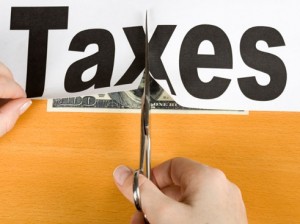There’s an ongoing effort by President Obama and fellow “progressives” not only to continue to blame George W. Bush for every economic woe facing America — even as every economic indicator is far worse under Obama — but to permanently discredit the value of tax cuts. Tax cuts are an unmitigated evil that progressive crusaders must forever exorcise.
For President Obama and his allies, this is a project they’re taking back to the Reagan years, starting with an assault on President Reagan’s enormously successful 1981 tax cuts. Their campaign, however, can’t end with Reagan. They need to venture way back to Andrew Mellon in the 1920s.
Mellon was Treasury secretary throughout the Republican administrations that followed Woodrow Wilson’s exit from the White House in 1921. He was a superb Treasury secretary, with few peers before or since.
Unemployment under Wilson’s “progressive” presidency had hit almost 12 percent. In 1921, the newly inaugurated president was Republican Warren Harding. As Harding’s Treasury secretary, Mellon argued against spending increases as “stimulus” for economic growth and, instead, pushed for tax rate cuts. It was a Reagan-like move, with Reagan-like results. By 1923, unemployment dropped to under 3 percent, where it (roughly) remained throughout the 1920s under Harding and his Republican successor, Calvin Coolidge.
The economy did not begin its crash and sustained slide until the presidencies of Herbert Hoover, a Republican, and FDR, a Democrat. Both Hoover and FDR jacked tax rates through the roof. The federal tax rate on income reached a breathtaking 94 percent under FDR. As historian Burt Folsom shows, FDR actually considered raising the upper rate to 99.5 percent on income above $100,000. (Yes, you read that right.)
FDR, for the record, despised Andrew Mellon. He subjected Mellon to an intense, intrusive investigation of his income-tax returns, pursuing him to his deathbed. FDR had a vendetta against Mellon’s entire philosophy on taxation. It became personal as well as political.
Here’s a Mellon insight that FDR no doubt detested: “It seems difficult for some to understand that high rates of taxation do not necessarily mean large revenue to the government, and that more revenue may often be obtained by lower rates.”
FDR certainly didn’t understand, though his Treasury secretary, Henry Morgenthau, eventually came to that conclusion. “We have tried spending money,” said Morgenthau. “We are spending more than we have ever spent before and it does not work…. I say after eight years of this administration we have just as much unemployment as when we started. … And an enormous debt to boot!”
Morgenthau figured out what Andrew Mellon already knew. Said Mellon: “The problem of government is to fix rates which will bring in a maximum amount of revenue to the Treasury and at the same time bear not too heavily on the taxpayer or on business enterprises.”
And so, during the Harding and Coolidge administrations, Mellon succeeded in promoting tax-rate cuts rates across the board, with upper-income rates reduced from 73 to 24 percent. The cuts were very similar to Reagan’s in the 1980s. And like under Reagan — and contrary to liberal mythology — total tax revenue to the Treasury actually increased.
Under Reagan, federal revenue rose from $599 billion to almost $1 trillion. Under Mellon’s stewardship in the 1920s, revenue went from $700 million to above $1 billion. And unlike under Reagan, Mellon’s policies eliminated the budget deficit. (Coolidge was able and willing to cut spending where Reagan did not.)
For President Obama and his fellow liberals, these are inconvenient, unwelcome facts. They believe they need higher taxes to feed and sustain their government class. Democrats are banking on that government class — which they want to expand and unionize — to keep them in power not another four years but another 40 years.
Tax cuts are anathema to our president and progressives. And so is the wisdom of Andrew Mellon.
[Editor’s note: this article first appeared in the Pittsburgh Tribune-Review.]




